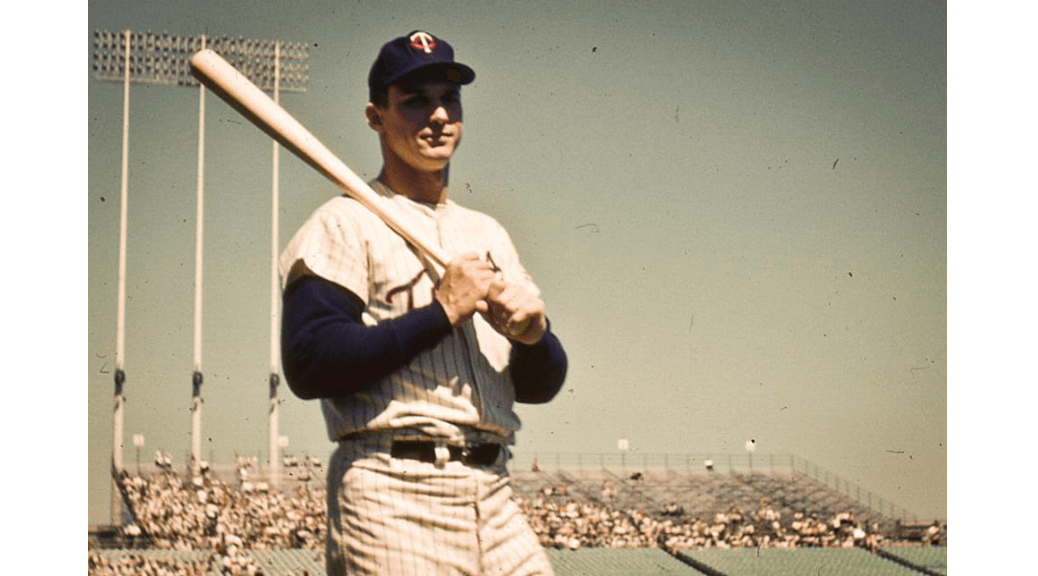MINNESOTA 6, CHICAGO 5 IN MINNESOTA
Date: Thursday, October 2.
Batting stars: Bob Allison was 2-for-3 with a two-run homer (his eighth) and a double. Rich Reese was 2-for-3 with a home run (his sixteenth) and two RBIs. Tony Oliva was 2-for-3 with a home run, his twenty-fourth.
Pitching stars: Dick Woodson pitched a scoreless inning, giving up a hit and a walk. Joe Grzenda pitched a scoreless inning, giving up a hit. Al Worthington pitched a perfect inning, striking out one. Ron Perranoski pitched a perfect inning.
Opposition stars: Jose Ortiz was 2-for-4 with a double and two RBIs. Rich Morales was 2-for-4 with a triple.
The game: Reese hit a home run in the first inning to give the Twins a 1-0 lead. The White Sox came back to get the lead in the second, as Bill Melton and Gail Hopkins singled and Ortiz delivered a two-out two-run double. They extended the lead to 4-1 in the third. Morales tripled, Duane Josephson walked, and Ron Hansen came through with a two-run triple.
The Twins got one back in the bottom of the third, but could have gotten more. Jim Kaat singled and Cesar Tovar doubled, putting men on second and third with one out. Reese's sacrifice fly brought home one, but that was all, leaving the Twins down 4-2. They cut the margin to 4-3 in the fourth when Oliva led off with a home run, but Chicago got the run back in the fifth. Walt Williams singled to lead off the inning and Morales followed with a single-plus-error. A wild pitch scored Williams, but Kaat was able to escape without further damage. Still, the White Sox once again had a two-run lead at 5-3.
Chicago threatened in the sixth, putting two on with none out, but a double play took them out of the inning. It cost them, because in the bottom of the sixth Oliva hit a one-out single and Allison followed with a two-run homer, tying the score 5-5. The Twins took the lead in the seventh. With one out, Tovar and Reese singled, putting men on first and third. A passed all then brought Tovar home with the go-ahead run. The White Sox did not get a man on base after that.
WP: Grzenda (4-1). LP: Bart Johnson (1-3). S: Perranoski (31).
Notes: Allison started in left in place of Ted Uhlaender. George Mitterwald was behind the plate in place of Johnny Roseboro. Frank Quilici started at second in place of Rod Carew.
Herman Hill went to center field in the sixth, with Tovar moving to second base and Quilici coming out of the game. Tom Tischinski came in to catch in the seventh, with Mitterwald going to left field and Allison coming out of the game. Jim Holt, who had pinch-run for Oliva in the sixth, stayed in the game to play right field. Cotton Nash went to first base in the eighth, replacing Reese.
This was one of two career games in which Mitterwald played left field. The other was August 25 of this season, in which he was there for one inning.
The usage of Kaat at the end of the season seems strange to me. He started on September 25 and pitched five innings. He then pitched three innings of relief on September 30. He then started two days later, this game, and pitched five innings. None of these games meant anything, so I don't understand why you'd do that. As I said the other day, I wouldn't expect Kaat to have complained, but that doesn't mean it was a smart thing to do.
Carew ended the season batting .332. That's a fine average--it led the league--but he tailed off badly in the last two months of the season. On July 31 he was batting .373. Over the last two months he batted just .227.
Oliva ended the season batting .309. He also tailed off in the last two months, although not nearly as badly as Carew. On July 31, he was batting .327. Over the last two months, he batted .281. Not that there's anything wrong with .281, but it's not .327.
Killebrew ended the season with forty-nine home runs, leading the league. That was tied for the most he hit in a season, equaling his total in 1964. He hit just eighteen home runs in the first three months of the season, but hit thirty-one in the last three months. That's almost the exact opposite of his nearest rival in the home run race, Reggie Jackson, who hit twenty-nine homers in the first three months of the season but just eighteen in the last three months and only seven in the last two months.
Kaat gave up five runs on seven hits and two walks in his five innings, striking out two. Chicago starter Danny Lazar pitched six innings, allowing five runs on seven hits and a walk and striking out one.
This would be the last appearance of Danny Lazar's major league career. He had appeared in eight games in 1968, and this was his ninth and last in 1969. For his career, he was 0-1, 5.56, 1.47 WHIP in 34 innings. He made four starts in his seventeen games. He'd been a thirty-first round draft choice, so just making the majors at all is really quite an accomplishment for him. He had an excellent college career at Indiana State, and is in the Indiana State Hall of Fame.
Record: The Twins closed out the season at 97-65, in first place in the American League West, nine games ahead of Oakland. They would face Baltimore in the American League Championship Series. The Orioles had finished with a record of 109-53, finishing nineteen games ahead of Detroit in the American League East.


I'm not on Twitter, so please tell him you're welcome and stick around for the playoffs!
Two steps ahead of you.
Thanks!
Does anyone remember the opinion of the Twins' chances to make it to the World Series? 97 wins is a lot and there's still a 12 game gap between them and the Orioles.
I was hoping someone would be able to answer this question, because I really have no idea.
I started thinking, though, about the incredible difference in media then compared to now, especially for those of us who lived in the middle of nowhere. TV coverage of major league baseball, for me, was basically the NBC Game of the Week, which you could only watch if you happened to be indoors on a Saturday afternoon. The 10:00 news would give scores, and maybe mention if someone had an outstanding performance. There might be a Twins highlight if something had happened very early in the game, but that was all.
Radio was basically the Twins broadcasts. At that time the stations I listened to did not carry the pre-game show and the post-game show was basically the totals and the MLB scoreboard. Local radio sportscasts gave the scores and again might mention if someone had an outstanding performance. There was obviously no such thing as sports talk radio back then.
Newspapers gave better coverage--they would include the box scores and the AP reports--but it was delayed. We got the closest daily newspaper a day late. So, if the Twins played a Tuesday night game, a report would appear in the paper on Wednesday, which was the paper we got in the mail on Thursday. If the Twins played on the west coast, or if it was particularly long game, the Tuesday result would appear in Thursday's paper, which we got Friday.
There also was The Sporting News. It gave excellent coverage--individual stats, all the box scores, a report from a beat writer for each team, and various feature stories. It even included stats from all the minor leagues. The trouble was that it was always a week behind. I still devoured it, because most of the time I hadn't heard about the stuff they were covering anyway. I always hoped it would come on Saturday, so I would have the entire weekend to read it. Usually it did, but sometimes we didn't get it until Monday, which meant I had to read it whenever I could find the time.
I still have nostalgic feelings for the old Sporting News. But now, of course, you can get all that stuff and more every day. A series like the rewind would've been almost impossible not that many years ago, because the only way you could've gotten the information is to go to a library and go through old newspapers. The only points, I guess, are that a) things have really changed, and b) we are living in an awesome age to be a sports fan. We sometimes take that for granted, which is understandable, but once in a while we should maybe stop and think about how good we have it.
Even in the mid 80's I sometimes had to look at the boxscores in USA Today, and being on the west coast that didn't work out that well.
My baseball interest was highest in the late 80s/early 90s and Sporting News was definitely the highlight of the week. Devoured is right! It sure took a lot of imagination to look at those box scores and visualize how things might have happened on the field.
USA Today had a Baseball Weekly that was an attempt at competing, and while it was a poor substitute, it was appreciated.
Baseball Weekly kind of filled the gap between when The Sporting News stopped publishing the box scores and when everyone had online access to them.
Let's go, Twins! Those Orioles are over-rated!!!